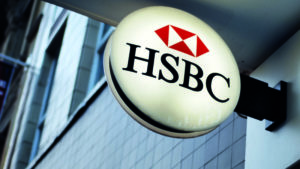The managers of the Chelverton European Select fund have upped exposure to oil services companies on the belief that the oil majors are on the verge of a chunky capex spend.
Dale Robertson and Gareth Rudd have increased portfolio exposure from about 6% at the fund’s launch in March to 9% today.
Reserves hit oil sector capex
Speaking to Portfolio Adviser, Robertson said many of the big oil players slashed capex budgets to preserve cashflow after the Brent crude oil price dropped to $27 in 2016, which led to a reduction in the oil reserves they hold.
According to a report by S&P Global Platts, last year the oil reserves of the world’s top seven western integrated oil majors collectively dropped to 86.93 billion barrels, down 0.7% year on year and 9% below 2013 levels.
Robertson said: “The oil services companies have had near-death experiences because the plunge is so severe that their businesses get choked. There has been no capex spend from the majors for four or five years.”
But he believes services companies will benefit when oil majors are forced to replenish reserves and increase capex spend.
“We think there is a capex cycle coming,” he said. “Over the past 12 months the integrated oil companies look great because they have cut back on all their capex and their free cashflow goes through the roof – they have reacted well from a share price point of view.
“The suppliers to those companies will benefit when they start spending. It is not yet in share prices because it is not in results yet, but we think over the next two or three years we are going to make a lot of money.”
To capitalise on this the pair recently added Norwegian drilling contractor Bora Drilling to the portfolio. They also count Subsea 7 in the fund’s top 20 holdings, representing 2.4% of the portfolio.
Small-cap IT companies under the radar
Elsewhere, the pair is exploring the IT services theme because they see an opportunity from companies struggling to deal with Big Data and artificial intelligence that need to outsource the skills.
Rudd explained: “We see digitisation being an ongoing and multi-year phenomenon, and a lot of companies want to digitise their business, but that is a small part of what is a big legacy business. We are trying to identify smaller companies operating in this area.”
The pair is playing the theme through Finnish firm Siili, the portfolio’s seventh largest position at 2.6%, Norwegian tech company Data Respons and French firms Capgemini and Akka Technologies. About 10% of the portfolio is now exposed to this theme.
Robertson said a lack of research at the small end of the market means these companies are below the radar for many investors. They also exhibit good growth irrespective of the economic cycle.
“If the economy turns down, growth may slow but it is unlikely companies will rein in R&D or technology investment because it is so critical,” he said.







